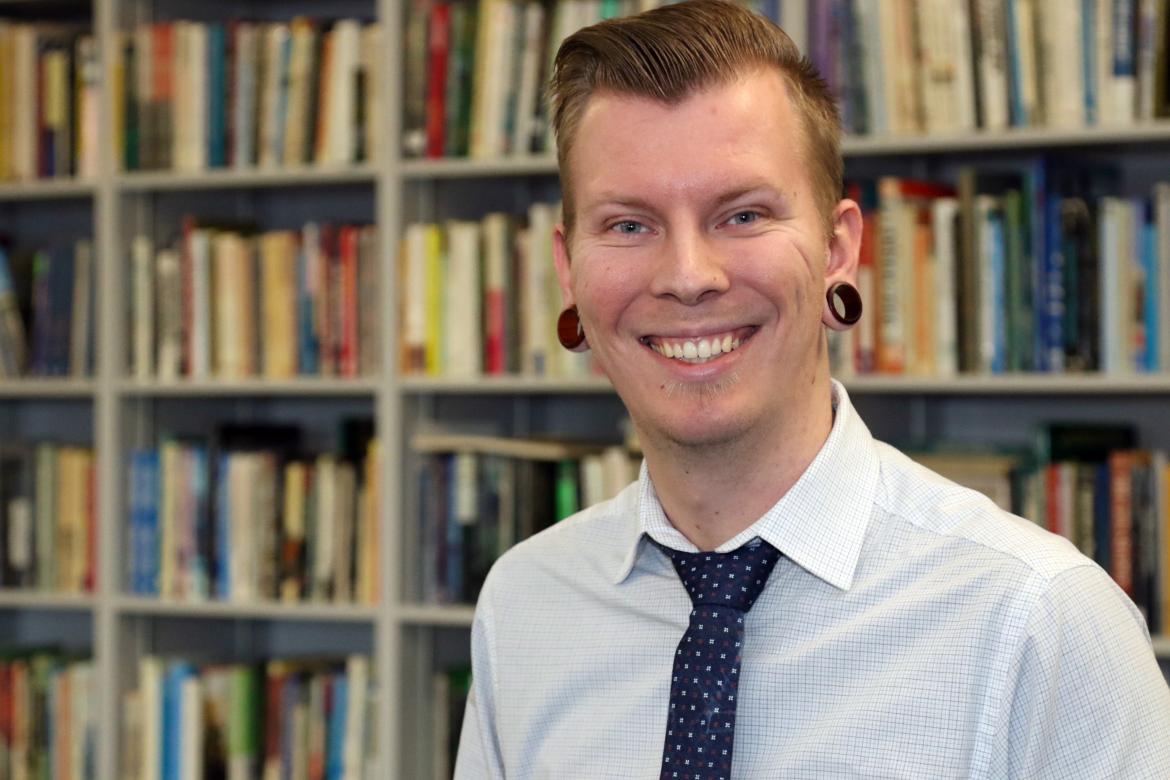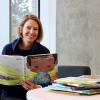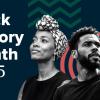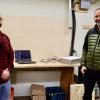
VIU Master of Community Planning graduate student Dylan Thiessen delves deep into the role public libraries play in communities.
January 7, 2019 - 2:30pm
The value of public libraries goes well beyond the multitude of books lining the shelves.
Assessing the role that libraries play in contributing to community completeness and increasing? quality of life, and how this can, in turn, help marginalized urban groups is what Vancouver Island University (VIU) Master of Community Planning student Dylan Thiessen aims to determine.
Thiessen began his research project investigating equitable planning policies – guides that are used to achieve a more balanced distribution of public resources, making communities more inclusive and resilient.
“A lot of research has already been done on complete communities and there is less research exploring how these can help people live better lives,” says Thiessen.
Thiessen spent a lot of time in public libraries while growing up, and his father is a librarian with Fraser Valley Regional Library.
“I have always loved being in libraries and I can now merge an interest in private life into what I am doing in my academic life.”
Thiessen says more cities are requiring planning of complete communities, where you are able to live, work and play, which are important factors in quality of life.
“In the past, quality of life was measured by economic factors – your standard of living reflected by how much you earn. Public libraries are one of those social and cultural institutions that often factor into the idea of a complete community. By their nature they are a public space, a warm place and a safe place. Accessible year-round, they offer a host of services for free, not just borrowing of books. There is incredible research to be done as to the role public libraries play as agents of placemaking, public spaces that promote people’s health, happiness and well-being.”
Thiessen hopes his findings will help city planners and individuals fully understand the depth of services libraries offer and the part they play in small communities.
“In the court of public opinion libraries are in a difficult time, in a digital era where brick and mortar book stores are closing and you can access books and reading material online for little or no cost,” says Thiessen. “You want people to fully understand libraries are one of the last remaining institutions, buildings that are publicly accessible to nearly everyone, and these are things that should be cherished.”
Thiessen is pursuing his research with help from a Social Sciences and Humanities Research Council (SSHRC) of Canada Graduate Scholarship award of $17,500 for 12 months.
“It’s the largest award I’ve ever received, and I am honoured knowing there are professionals that see merit in the research I am undertaking.”
Thiessen is the first student coming into the Master of Community Planning program with full SSHRC funding.
“These grants are very important, they allow students to dive deeply into research without necessarily having to worry how to fund their studies,” says Dr. Pam Shaw, Director of VIU’s Master of Community Planning program.
The objective of the CGS-M program is to support students who demonstrate a high standard of achievement in undergraduate and early graduate studies.
“It’s also important to note, Dylan could have gone anywhere in Canada and he chose VIU and I am grateful for that,” adds Shaw.
-30-
MEDIA CONTACT:
Annette Lucas, Communications Officer, Vancouver Island University
O: 250.741.2020 | C: 250.618.7296 | E: Communications@viu.ca
Tags: community | Community Planning | Research | Scholarship | Research






